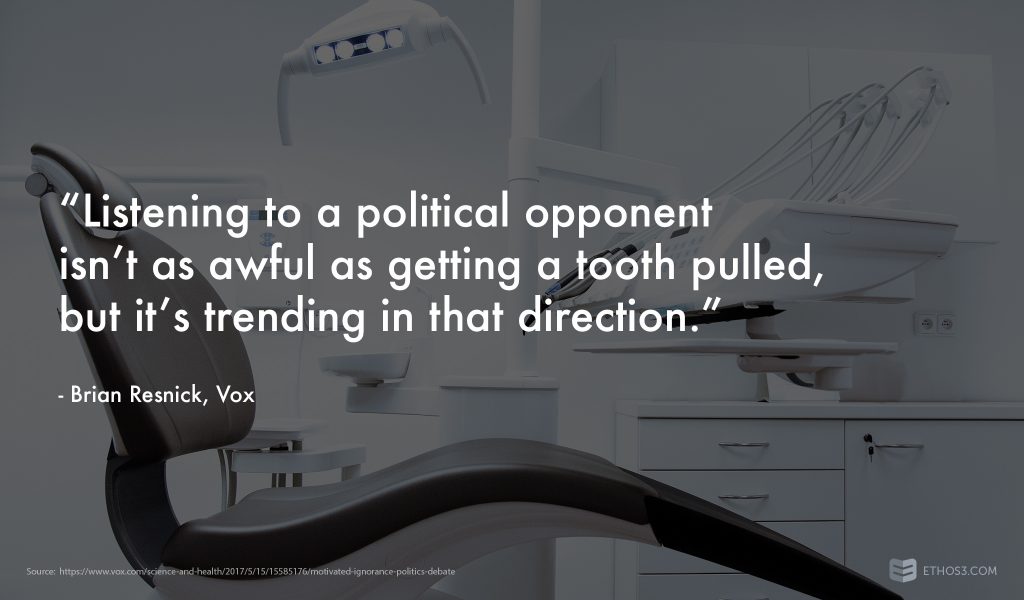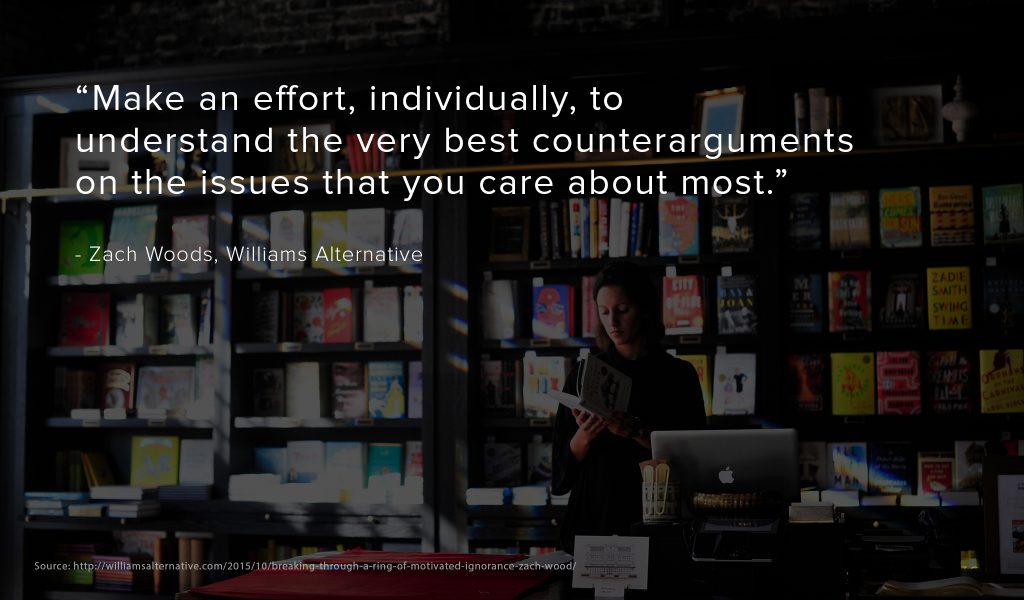Do you ever feel like your audience isn’t buying what your presenting? Or no matter how you present the information, they don’t believe you? Maybe it’s not your presentation that’s the problem, but it’s your audience’s inability to understand your perspective. Your audience members could be experiencing something known as motivated ignorance. Let’s break down what that is, the effect it has on groups of people, and how you can combat it during your presentation.
Motivated ignorance can be simply defined as when people don’t want to know the facts. While ignorance is defined as a lack of knowledge, education or understanding; motivated ignorance is when others choose not to educate themselves out of fear. For example, you may be aware that your health is declining, but instead of going to the doctor to find out what’s wrong, you choose not to in order to avoid finding out about a serious, life-changing illness.
We see motivated ignorance happen most often in politics. Whether the topic is climate change, healthcare, or who should be president, people will deny research and facts so that their beliefs aren’t shaken. In today’s political landscape, we are seeing this more often. Headlines concerning scandals around President Donald Trump don’t upset voters. Why? The Associated Press reports that many of his supporters tune it out or “choose to not listen” to the negative news.
Another study found just how deep motivated ignorance can run. Two hundred people were given two options: read and answer questions on an opinion they agree with, or read the opposing viewpoint. The topic was gay marriage. The people who choose to read the opinion they agree with would be entered to win $7; but if they read the opinion they disagree with, they would be entered to win $10. The study found that 63% of people chose to go with the opinion they agree with instead of the chance to win more money.
More surveys were performed in this study. One asked participants to rank how interested they were in learning about opposing political views to their own. Their options were “watching paint dry,” “sitting quietly”, “going for a walk on a sunny day”, and “having a tooth pulled.” That study found that “listening to a political opponent isn’t as awful as getting a tooth pulled, but it’s trending in that direction.”

The study concluded, “People on the left and right are motivated to avoid hearing from the other side for some of the same reasons: the anticipation of cognitive dissonance and the undermining of a fundamental need for a shared reality with other people.”
Motivated ignorance is not only a bad thing, however. Sometimes if the truth will only cause more harm than good, it’s best to not acknowledge it. Paul Thagard with Psychology Today writes that it is best not to know what is going on in everyone’s minds all the time. Ignorance can be bliss if it makes for a happier outlook on life. You may or may not agree with this approach, but it is ultimately your decision to face your fears or not.
When it comes to dealing with an audience member with motivated ignorance, unfortunately there’s not much you can do to change their mind. Instead of responding with anger or frustration towards these types of audience members, reinforce your own openheartedness to their point of view. Be respectful and aware that an audience may not agree with your message, no matter what it is.
Writer Zach Woods for The Williams Alternative offers a suggestion for ending motivated ignorance. He says, “make an effort, individually, to understand the very best counterarguments on the issues that you care about most… think as hard as one can about counterarguments out of the understanding that each of us can and should try to learn from those with whom we vociferously disagree.”

Motivated ignorance should not deter you from giving your presentation. As long as you can take the high road and keep an open mind, you may offer up some valid points that will get your audience thinking. And who knows? Maybe your message will change someone’s point of view.
More from the Ethos3 Blog:
The Complete Guide to Knowing Your Audience
How to Deal with Presentation Backlash
Why Audience Members Need to Have An Open Mind
Lying in Presentations: How to Respond When the Audience Calls You Out
